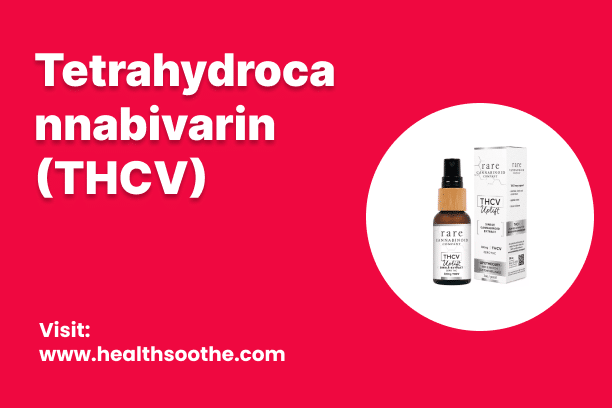TUMS offers a safe solution for relieving heartburn in pregnant women while also supplementing calcium to the body. During pregnancy, it's recommended that women consume between 1,000 mg and 1,300 mg of elemental calcium daily. It's important to schedule TUMS intake separately from iron supplements.
Heartburn, a discomfort frequently experienced during pregnancy, arises when stomach acid ascends the esophagus, inducing a burning sensation in the chest or throat. Fortunately, pregnancy-related heartburn poses no harm and can be controlled with or without medication, including antacids.
Antacids, available over-the-counter (OTC), work by neutralizing stomach acid to alleviate acid reflux. Although most antacids are considered safe during pregnancy, caution should be exercised with certain types to avoid potential risks.
Taking Tums and Antacids While Pregnant: Is It Safe?
Tums antacid emerges as a safe and efficient over-the-counter (OTC) medication for addressing heartburn during pregnancy.
Tums is formulated with calcium carbonate, its active ingredient, widely recommended for managing heartburn in pregnancy. Research findings suggest that the benefits of calcium carbonate encompass heartburn relief, prevention of preeclampsia, and supplementation of additional calcium to one's diet. However, it's prudent to exercise caution when using Tums alongside high-calcium foods like milk or prenatal vitamins containing calcium.
For those seeking alternatives, antacids devoid of calcium, such as magnesium hydroxide and aluminum hydroxide, are viable options. Often, antacids combine these ingredients into products like Mylanta, which are deemed safe for pregnancy when taken at appropriate doses.
Nonetheless, it remains crucial to consult your healthcare provider before introducing any medication during pregnancy.
Read Also: 9 Tips to Stay Healthy in Pregnancy
How to Take Tums While Pregnant
Taking the appropriate dosage of Tums can mitigate the risks associated with excessive calcium intake.
For all Tums variants, it's advised to consume the antacid at the onset of heartburn symptoms. Given the variety of Tums formulations available, refer to the following guidelines to determine the correct dosage of calcium carbonate and the maximum daily intake during pregnancy:
- Tums Regular Strength: Chew and ingest two to four tablets as needed, with a maximum of six tablets within 24 hours.
- Tums Chewy Bites: Chew and swallow two to four tablets as required, with a maximum of six tablets within 24 hours.
- Tums Naturals: Chew and consume two to three tablets as necessary, with a maximum of five tablets within 24 hours.
- Tums Ultra: Chew and swallow two to three tablets as needed, with a maximum of five tablets within 24 hours.
Please note that this list doesn't encompass all Tums products. Therefore, it's imperative to adhere to the instructions on the label to ensure a safe calcium intake during pregnancy.
When utilizing any Tums product, refrain from exceeding the maximum dosage for more than two weeks unless directed otherwise by your healthcare provider. Overconsumption of calcium carbonate may elevate the risk of kidney injury, confusion, tremors, or light-headedness.
Pros and Cons of tums
Pros of Tums:
- Effective Relief
- Safe for Pregnancy
- Calcium Supplement
- Over-the-Counter Availability
Cons of Tums:
- Short-Term Relief
- Potential Side Effects
- Interactions with Other Medications
Differences Between tums and dramamine
Tums:
Tums is an antacid medication primarily used to relieve symptoms of heartburn, acid indigestion, and upset stomach. It works by neutralizing excess stomach acid.
Dramamine:
Dramamine is an antiemetic medication used to prevent and treat motion sickness, as well as to alleviate symptoms of nausea, vomiting, and dizziness associated with motion sickness.
Alternative to tums
Proton Pump Inhibitors (PPIs):
PPIs are a class of medications that block the production of stomach acid by inhibiting proton pumps in the stomach lining. Examples include omeprazole (Prilosec), esomeprazole (Nexium), lansoprazole (Prevacid), and pantoprazole (Protonix). PPIs are typically used for more persistent or severe cases of heartburn and acid reflux, but they may take longer to provide relief compared to antacids.
Antacids to Avoid While Pregnant
While magnesium hydroxide is considered safe for use during pregnancy, it's important to avoid other forms of magnesium in pregnancy. Magnesium trisilicate, for instance, should be steered clear of during pregnancy due to the potential risks associated with long-term usage, including decreased muscle tone, kidney stones, and fetal lung distress.
In addition to magnesium-containing antacids, those containing sodium bicarbonate should also be avoided during pregnancy. Sodium can contribute to water retention in the body, exacerbating swelling, particularly in areas like the ankles, which is already common during pregnancy.
Although aspirin is not classified as an antacid, it's often present in over-the-counter heartburn medications like Alka-Seltzer. It's advisable to refrain from consuming aspirin-containing products during the second trimester of pregnancy. Aspirin has been reported to the Food and Drug Administration (FDA) for its potential to reduce amniotic fluid levels in the womb and increase the risk of kidney issues in the baby.
Alternative Heartburn Medications
Tums stands out as the primary choice for heartburn relief during pregnancy due to its safety and effectiveness. However, if antacids prove ineffective, there are alternative options available that are safe for pregnancy.
When antacids don't alleviate heartburn symptoms, sucralfate becomes a viable consideration. This prescription medication is slowly absorbed in the stomach, rendering it safe for use during pregnancy.
If sucralfate isn't suitable or antacids alone prove insufficient, histamine-2 receptor antagonists like Pepcid AC (famotidine) can be utilized. Famotidine is the sole histamine-2 receptor antagonist deemed safe for pregnancy. Combining famotidine with Tums can enhance heartburn symptom relief.
As a last resort, if all other options fail, a proton pump inhibitor (PPI) in conjunction with antacids may be considered. However, it's crucial to avoid Prilosec (omeprazole) during pregnancy due to potential toxicity risks. Instead, other PPIs such as Protonix (pantoprazole) or Nexium (esomeprazole) are deemed safe for use in pregnancy.








